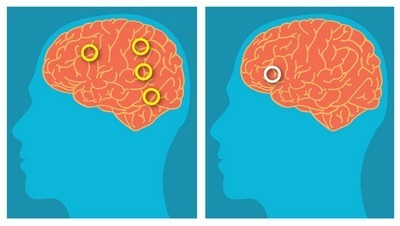Posts Tagged ‘reading’
Neuroimaging study finds extensive brain rewiring–in just six months–among illiterate adults learning to read and write
— Learning to read and write rewires adult brain in six months (New Scientist): “Learning to read can have profound effects on the wiring of the adult brain – even in regions that aren’t usually associated with reading and writing. That’s what Michael Skeide of the Max Planck Institute for Human Cognitive and Brain Sciences…
Read MoreHow to improve memory skills and remember what you read: Beyond phonics and “whole language”
Despite the increasing visual media we are increasingly exposed to, reading is still an important skill. Whether it is school textbooks, online newspapers or regular books, people still read, though not as much as they used to. One reason that many people don’t read much is that they don’t read well. For them,
Read MoreStudy: Dyslexia not related to intelligence. Implications for discrepancy model?
NIH-funded study finds dyslexia not tied to IQ (NIH press release): — “Regardless of high or low overall scores on an IQ test, children with dyslexia show similar patterns of brain activity, according to researchers supported by the National Institutes of Health. The results call into question the discrepancy model — the practice of classifying…
Read MoreBrain Development Through Bilingual Education and Activities Requiring Self-Control
How To Help Your Child’s Brain Grow Up Strong (NPR): — “Kids who learn two languages young are better able to learn abstract rules and to reverse rules that they’ve already learned,” says Aamodt. “They’re less likely to have difficulty choosing between conflicting possibilities when there are two possible responses that both present themselves. They’re…
Read MoreWorking memory: a better predictor of academic success than IQ?
Working memory is the ability to hold information in your head and manipulate it mentally. It is a good predictor for academic success.
Read MoreChanging our Minds…by Reading Fiction
(Editor’s Note: we are pleased to bring you this article thanks to our collaboration with Greater Good Magazine.) Changing our Minds By imagining many possible worlds, argues novelist and psychologist Keith Oatley, fiction helps us understand ourselves and others. ‑By Keith Oatley For more than two thousand years people have insisted that reading fiction is good…
Read More



